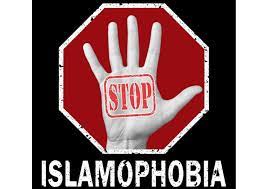
STRATEGIC ASSESSMENT-The UK government will today unveil a new definition of extremism which appears to target Muslims, despite an eruption of hate crimes against Jews and Muslims since the 7 October Hamas incursion in southern Israel. Critics say that the change risks infringing on freedom of speech.
Earlier this month, Prime Minister Rishi Sunak claimed that Britain’s multi-ethnic democracy is being deliberately undermined by both “Islamist” and far-right extremists, and more needs to be done to tackle the perceived problem.
Anti-Semitic incidents rose by 147 per cent in 2023 to record levels, according to the Community Security Trust, a Jewish safety watchdog which receives substantial funding from the British government. Tell Mama, a group which monitors anti-Muslim incidents, and which also receives government funding, said last month that anti-Muslim hate crimes had risen by 235 per cent since October.
“Today’s measures will ensure that government does not inadvertently provide a platform to those setting out to subvert democracy and deny other people’s fundamental rights,” said Michael Gove, the communities minister who heads the department that produced the new extremism definition. “This is the first in a series of measures to tackle extremism and protect our democracy.”
The minister said on Twitter (now called X) in 2017, “I’m proud to have been a Zionist and Friend of Israel all my adult life.” He has also told an audience of Jewish Chronicle readers in North London that it is “common sense” to be a Zionist. It is notable that the Muslim organisations named in a draft version of Gove’s ministerial statement seen by the Guardian and thus appear to be targeted by his definition of “extremism” are all prominent in their support for Palestinian rights and freedom from Israeli occupation. They include MEND (Muslim Engagement and Development), CAGE, Friends of Al-Aqsa, 5Pillars and the Muslim Association of Britain.
CAGE has issued a joint statement with Palestine Action and Black Lives Matter UK, describing Gove’s definition of extremism as, “A continuation of the decades-long strategy aimed at inciting and exploiting fears against Muslims to build an authoritarian and repressive infrastructure that suppresses any dissent that is not licensed by Whitehall.” The organisations called for the British government to be “held to account for aiding and abetting the Genocide in Gaza and weaponising ‘extremism’ to shield itself.”
The new definition, said Ismail Patel, the chair of Friends of Al-Aqsa, is not only anti-Palestinian in its objectives, but also Islamophobic. “This is an example of the divisive policies of the Conservative government and its efforts to stoke a culture war in Britain,” he told MEMO. “The party has been driven by Islamophobia for years. It’s response to the genocide in Gaza is a symptom of this insidious attitude.”
The definition states that extremism “is the promotion or advancement of an ideology based on violence, hatred or intolerance”, that aims to destroy fundamental rights and freedoms; or undermine or replace the UK’s liberal parliamentary democracy; or intentionally create an environment for others to achieve those results.
“A broad cross-section of British society will see through the government’s divisive extremism proposals. Extremism is a grave concern, and we all stand in opposition to it, despite the efforts of bigots to suggest otherwise through baseless accusations,” said Zara Mohammed, secretary general of the Muslim Council of Britain (MCB).
“In recent weeks, we’ve witnessed genuine extremism as leaders of the Conservative Party have smeared prominent Muslim politicians with the vague ‘Islamist’ label, perpetuating divisive narratives about Muslims purportedly plotting to seize control of the country…Combatting extremism demands leadership. It requires leaders to unite communities rather than sow discord,” she added in a statement,
Britain already bans groups which it says are involved in terrorism, and supporting or being a member of these organisations is a criminal offence. The Palestinian Islamic Resistance Movement, Hamas, is among the 80 international organisations that are banned.
Groups which will be identified as extremist following a “robust” assessment over the next few weeks will not be subject to any action under criminal laws and will still be permitted to hold public protests. However, the government will not provide them with any funding or any other form of engagement. Currently, no groups have been officially defined as extremist using the former official definition which has been in place since 2011.
Gove said in an interview on Sunday that some recent large-scale pro-Palestinian marches in central London had been organised by “extremist organisations”, and people might choose not to support such protests if they knew they were giving credence to those groups. The involvement of anti-Zionist Jews in such demonstrations places the pro-Israel British minister and government in a quandary.
Even before the new definition was announced, critics warned it could be counter-productive. “The problem with a top-down definition of extremism is that it catches people who [we] don’t want to catch,” said Archbishop of Canterbury Justin Welby, the spiritual head of the Anglican Communion. “It may accidentally inhibit what we have very preciously in this country, an extraordinarily robust freedom of speech and ability to disagree strongly,” he told BBC Radio on Wednesday.
More than 50 survivors or relatives of victims of “Islamist” attacks in Britain have also signed a letter accusing some politicians of playing into the hands of militants by “equating being Muslim with being an extremist.”





